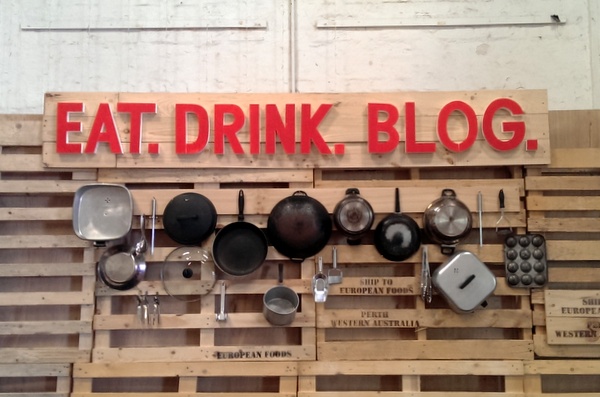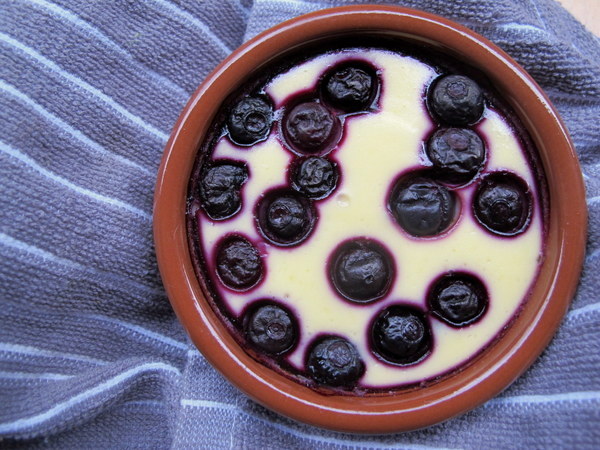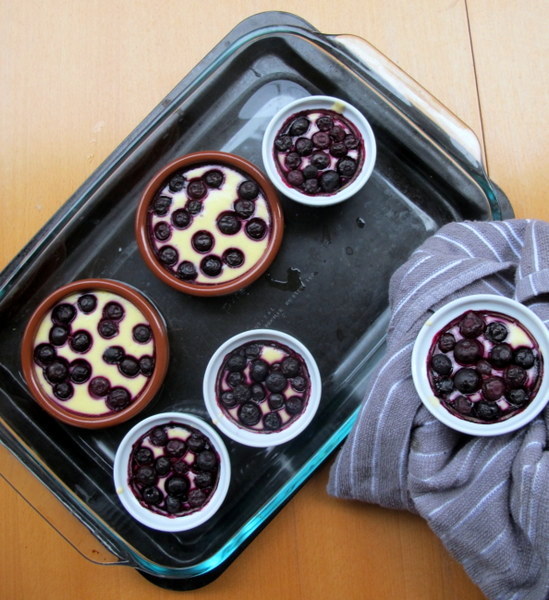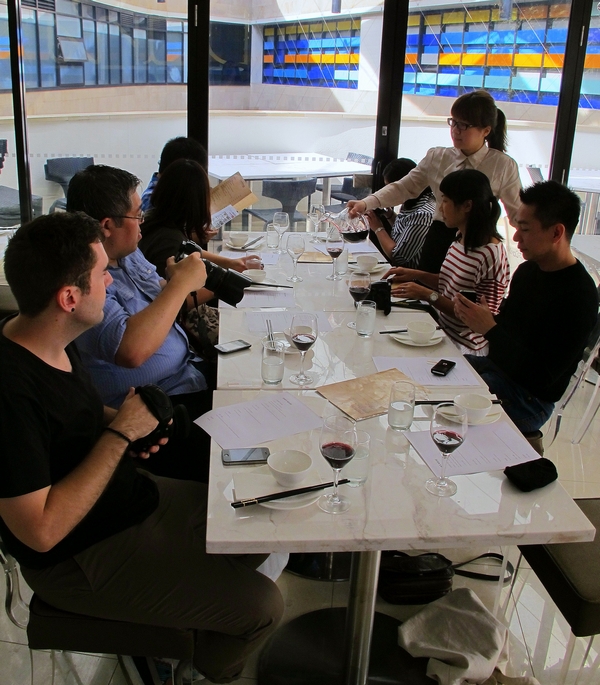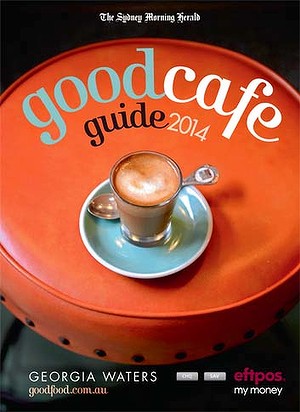Someone finally said it. Maybe, we’re doing it wrong. But perhaps not in the way that we think…
Bloggers = mainstream media
At this year’s Eat. Drink. Blog. conference in Perth, one of the highlights for me was Thang Ngo’s presentation on mobile and the future of blogging. In it, he warned us that if we’re not careful, bloggers could be dethroned by a more tech, mobile and analytics-savvy crew. He pointed out that our success, whether measured by google rankings, page views or the less tangible ‘relevance’, is in many ways a happy accident, whereby traditional media dropped the ball – they got online too slowly and we were already there. But complacency and failure to move with the times could leave us straggling behind.
Every day, it seems we are becoming more and more like traditional media, and they are becoming more and more like us. Could punchy, short, media-rich content save us? Certainly it would drive traffic and increase unique views. And then?
There’s more to blogging than numbers
As bloggers, what’s the aim of the game? Is it to be seen by as many eyes as possible? Of course if we write, we want to be read, so it makes sense to know how to ‘be seen’, but as I write this, the top story on News.com.au is ‘Box Office Bombs: the 15 worst movies in film history’, so clearly numbers are not all there is to blogging.
Saying ‘no’ to PRs
Then something significant happened. For the first time since I first attended Eat. Drink. Blog in 2011, somebody got up and talked about working with PR companies and said something other than ‘just do what feels right to you’ or ‘full disclosure’.
Phil Lees, the blogger behind ‘last appetite’ and Social Media Manager for Tourism Victoria, said that in his opinion, food bloggers shouldn’t write sponsored posts, because sponsorship influences the kinds of things they write about, and that will influence their readers.
This was hardly revolutionary, but all hell broke loose in our little corner of the twitterverse. As Phil himself tweeted:
You are an expert
Let me put it this way. PRs contact you because you are an SME; a subject matter expert. You are an ‘influencer’, with a strong brand. But how did you become an SME, how did you build that ‘brand’? Probably through hard work and dedication. Probably through your unique voice. Probably because you were good at finding something or saying something or doing something in a way that others weren’t. In a nutshell, you knew something they didn’t, and you were willing to share it.
So you’re approached by a PR company, and they basically want to co-opt your brand, grab some reflected glow from you SME status. They offer you whatever they offer you to get you to say something about what they are trying to sell. There is nothing wrong with this, but there is also nothing right with it.
Your blog is your space
As Erika wisely said in her recent post, your blog is your blog much like your home is you home. If someone wants to provide you with a product or experience that you wouldn’t otherwise be interested in and you wouldn’t recommend, your rejection of their offer should be a forgone conclusion. And if you do write sponsored content, one thing that you can never say is “I write what I want, I don’t let anyone else influence my content.” That’s impossible. That’s impossible anyway, none of us are un-influance-able. But it’s certainly impossible if you’re writing sponsored content.
WTF does that mean?
I’m not saying that if you do PR posts, you are an idiot or your readers are idiots; that you say you enjoyed x brand of cocoa and suddenly your readership is rushing out to buy it, and your blog becomes an value-less platform for product spruikers nationwide.
What I’m saying is, brands are paying to take up space in our ‘neighbourhood’, to be part of our conversation, a conversation they may have no right to be a part of. On a micro level, sure, you can do ‘what feels right to you’. On a macro level, a broader trend develops with outcomes we may not yet have anticipated. Brands may have presence and prominence and power that, frankly, they may not deserve.
Check out another presentation that blew my mind back in 2011, Journalist Simon Marnie on why authenticity and diversity of opinion is so important in blogging (apologies for the picture quality of the video).
embedded by Embedded Video
YouTube
I for one am rewriting my editorial policy this week.
I’m gonna say it. I’m not a fan of substitutions. For example, you know those lil’ break-out boxes in those terrible women’s magazines you pick up to read on the plane sometimes? They kill me. ‘Want a handful of m & m’s? Substitute….a handful of sultanas. Want a slice of pepperoni pizza? Substitute ¼ of a piece of mountain bread with low fat cheese and a slice of lite ham. Profriterole? Granny smith apple. These are not substitutions, any more than a frozen banana put through the blender is ice cream.
Even things that are similar are not. the. same. Brown rice may be a replacement for jasmine rice, but they are different in many ways. Brown rice doesn’t have the heavenly scent, soft texture and marry with south-east Asian food in a perfect union the way jasmine does. A glass of rice milk is nothing like a frosty glass of full-cream Jersey goodness. Cocoa nibs are not as delicious as a hunk of proper chocolate. And nothing, NOTHING is a substitute for butter, I don’t care what anyone says.
The folks out there telling you that they are sooo looking forward to that second plate of kale chips? Trust me, they’re not. And if you *are* looking forward to these kale-y snacks, please don’t call them chips. Call them dehydrated kale chunks and be done with it. If you’re looking forward to your quinoa salad, by all means look forward to it, but *as* a quinoa salad, not as a substitute for prawn risotto with lashings of parmesan. They’re not even in the same league.
So. I want to eat some cheesecake this week. And even though I still have a few kilos I would like to lose, I am going to have some. This is my actual cheesecake recipe, and it is actually a cheesecake. It doesn’t have a crust, but in all other respects, it is what it appears to be. The secret to making it ‘healthy’, whatever that means, is portion size. Make this into 6 tiny cheesecakes. Oh, and it’s piss-easy. So get baking.
Lau’s tiny baked cheesecakes for non-crazy people
This recipe serves 6 and is best made a day ahead.
250g cream cheese (room temperature)
2 eggs (room temperature)
1/3 cup caster sugar
The juice of one lime or lemon
The zest of one lime or lemon, grated
1 cup of appropriate fruit – I used frozen blueberries
Preheat oven to 150°c. Beat the cream cheese, sugar and zest together until smooth. Add the eggs, one at a time, beating until well incorporated. Add the juice and beat for about 30 seconds. Split mixture between 6 individual ovenproof dishes and sprinkle with fruit chunks.
Boil a kettle. Place the six dishes into a large baking tray and fill the tray with boiling water to halfway up the outside of the dishes.
Bake for 35 minutes, turn off the oven and leave to cool with the door ajar. Remove from oven and, once cool, refrigerate 3+ hours (I made them a day ahead and we ate them over the course of a week).
Whaddya say, chums? Got any legit substitution suggestions?
Writing a blog is by and large a solitary activity, and social media, paradoxically, can be anything but. But lately I’ve had the pleasure of becoming, dare I say it, part of a community. It’s a loosely-bound, organic kind of community, but a community nonetheless.
In a time when it’s commonly assumed we’re all living nutso, hectic, increasingly isolated lives, with the breakdown of family values, declining influence of religion, lack of moral fibre and increasing technologification (not a word) of daily life, I find this quite heartening. So I thought I’d take a break from writing about food and coffee today and turn instead to the food blogging community.
How to become part of something
Having an interest makes you interesting, at least to people who share that interest. This is why women’s mags will always tell you if you’re having trouble meeting people, join a club, take a class, or get a hobby. It sounds lame but that’s because they leave out two important ingredients:
1. The interest has to be genuine (verging on obsession helps), and
2. It takes time.

Photo courtesy of Food Scene Investigation
Genuine Interest
Most people can spot a faker from a mile off. I know I can, especially if what you’re faking is my bread and butter. It’s hard to have genuine interactions with people who are liars. But not only that. Say you want to become part of a community based on an interest in… nail polish. You want to really *love* nail polish. To death. Because everything you do in that community will be defined by nail polish. We see this all the time in cults. If you don’t want to drink the kool aid, you have to leave the cult. Your bible study group won’t have much to say to you if you stop reading the bible. I dread to think what I’d do with friends if I stopped drinking coffee. Senhor R and I have often turned to each other and said ‘What would you do with someone who didn’t love food? What would you talk to them about? How could you be in a relationship with them?” That’s it. Right there. That’s why I’m a food blogger and not a nail polish blogger.
Doing the time
This goes hand in hand with the genuine interest thing, because if you aren’t obsessed with something, how the hell are you going to be part of a community based on it for years to come? But more importantly, it takes time to make yourself known. In the case of blogging, no one’s really going to read you that much at first. On social media, conversations, building up rapport, all that stuff – that can’t just suddenly happen. Even meeting people you’ve chatted to online can be weird and awkward, you may not get on. You may not ever meet. But when you’re present – online, at events, wherever, you’ll be seeing the same faces and names popping up over and over again, and yours will be too.
A Community doesn’t have to mean BFFs 4-eva
This is a really important point. I’m not saying you’re not going to meet your BFF food blogging or bible studying or nail polishing – you very well just might. But I am saying that it doesn’t matter if you don’t, and that being your aim is…lame. Because an interest-based community is by definition, based around an interest, it’s fine to meet your community just for dinner, or bible study, or nail polishing, or things related to or based around that. Anything else is just icing on the cake and not everyone’s a fan of icing (or so I’m told). The aim of the game is not to make friends by having an interest. Pursuing that interest is the aim in and of itself.
Why become part of something?
Study after study has shown that being part of the herd makes us want to kill ourselves a little less. It gives our lives meaning, we feel connected. Note I’m not encouraging you to join a clique, with rigid rules, a reluctance to let in new people and a tendency to shun those who don’t follow protocol. I’m talking about a group where people come together to do something, together, that they are interested in, and that gives them a feeling of purpose. But the main reason to become part of a community is IT’S FUN! And yes that warrants caps and an exclamation point.
Are you part of an interest-based community (or as I am now calling it, an IBC)? What’s been your experience?
About me
 Sharing easy recipes, hunting down the best coffee. Honest accounts, nothing too serious. Read more...
Sharing easy recipes, hunting down the best coffee. Honest accounts, nothing too serious. Read more...Recent Posts
- Aerpress means no more shit #travelcoffee and #workcoffee
- Why I write and four ace bloggers who do it better
- The five best things I ate in London
- Shoreditch is awesome, airports are not
- I quit sugar? Do I bollocks.
- Cubao Street Food, Alexandria
- The Reformatory Caffeine Lab, Surry Hills
- Brewtown Newtown
- Stay caffeinated over Christmas
- Gumption by Coffee Alchemy, Sydney CBD
Popular posts this month…
 Sparkling Long Black posted on May 10, 2011
Sparkling Long Black posted on May 10, 2011  Review – Philips Saeco Intelia posted on January 10, 2012
Review – Philips Saeco Intelia posted on January 10, 2012  Cheat’s Dulce de Leche posted on January 7, 2011
Cheat’s Dulce de Leche posted on January 7, 2011 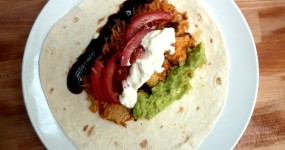 The quest for Mex part 2 – Feisty Chicken Burritos posted on December 21, 2010
The quest for Mex part 2 – Feisty Chicken Burritos posted on December 21, 2010 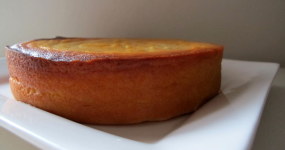 Kosher Whole Orange Cake posted on July 5, 2011
Kosher Whole Orange Cake posted on July 5, 2011  Café Review – Petty Cash Cafe, Marrickville posted on May 31, 2011
Café Review – Petty Cash Cafe, Marrickville posted on May 31, 2011  Salat Hatzilim posted on January 28, 2011
Salat Hatzilim posted on January 28, 2011 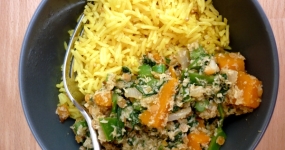 Sri Lankan Spinach with Coconut posted on December 10, 2010
Sri Lankan Spinach with Coconut posted on December 10, 2010
Disclaimer:
All opinions in this blog are mine, an everyday, real-life person. I do not accept payment for reviews and nor do I write sponsored posts. I do not endorse the content of the comments herein.

